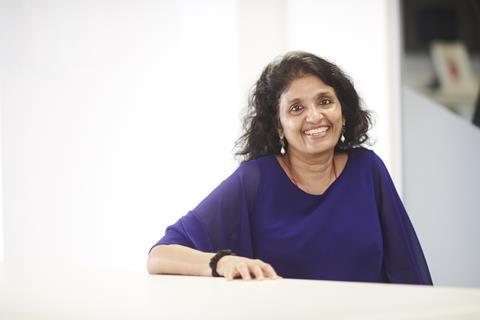Providing support and advice for TV’s workforce is crucial during lockdown, says Seetha Kumar

Evidence shared by mental health expert Dr Paul Litchfield at a ScreenSkills event this week indicated lockdown has damaged the nation’s wellbeing with the impact twice that of redundancy in normal times.
All measures of wellbeing are at the lowest they have been since UK records began, so, if the screen industries had begun to worry about the mental health of the workforce before the Covid-19 crisis, lockdown has definitely made it worse.
With production on hiatus and thousands of freelancers excluded from the government’s income support scheme, anxiety rates have surely soared.
It makes this Mental Health Awareness Week most pertinent and what we do to mark it more important still. In the case of ScreenSkills, we have responded with events designed to highlight issues for the film and television industry and training on what can be done to address them. This is not an issue without solutions.
Culture matters. We all have examples where bad and bullying behaviour is tolerated because the perpetrator is “talent”. That’s why we started the week with The TV Mindset, which offers peer support, and executive coach and a former head of production Sam Jukes-Adams examining perceptions of a culture of fear in TV and what could be done to tackle it.
It is also important to consider how to encourage change. Some companies have been endeavouring to tackle mental health issues head on by calling on experts – when not working with us, Dr Litchfield works with ITV on issues including duty of care.
What would the whole industry look like if it approached things differently? One approach is being offered by mental health first aid trainer Jude Spencer with a Creating Kindness Workshop on the psychology of kindness and how to create a kinder future – in keeping with the theme of kindness in this year’s Awareness Week.
We are both sad and delighted to say the workshop is sold out, but perhaps everyone can consider how to nurture kindness in our lives.
Another of our sessions examined the difficult issue of suicide and suicide prevention because there should be no doubt how serious the question of mental health can be. More common, though, is anxiety.
Freelance financial worries
When we at ScreenSkills asked the freelance workforce what they wanted most from us right now, financial worries were clearly uppermost in many minds. In response, we asked Alison Grade, author of The Freelance Bible, to run a series of money and life skills seminars.
We are also partnering with the Film & TV Charity for a session explaining what it is doing to support workers through and beyond the current crisis and the advice systems they have on offer. There are resources available.
We are issuing our own additional new resources, too. Our latest is a free online learning module aimed at tackling bullying and harassment.
Building on the principles and zero tolerance guidelines developed by the BFI and Bafta, it provides training for people to identify and tackle harassment and bullying behaviour in others and themselves, recognising that the nature of the screen industries means workers are often working without a clear human resources infrastructure.
Finally, we want to offer some reassurance to those understandably frightened by the threat of Covid-19 itself.
For all the fears of unemployment, we know the risk of getting ill in the close working environment of a set or location is generating further anxiety in the TV workforce.

We are part of industry discussions about how to return to work safely and our current challenge is developing training to help that happen. We will be announcing details soon.
Seetha Kumar is chief executive of ScreenSkills





























No comments yet